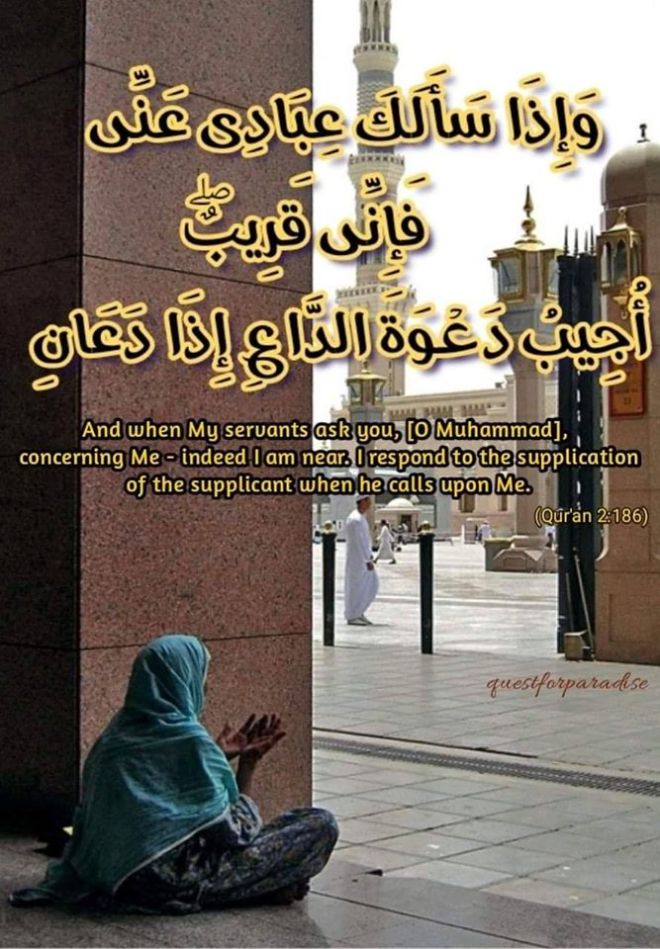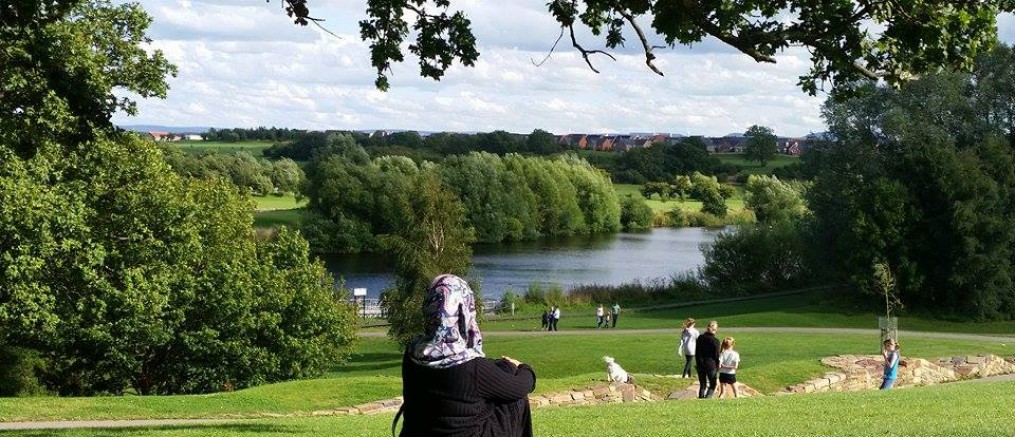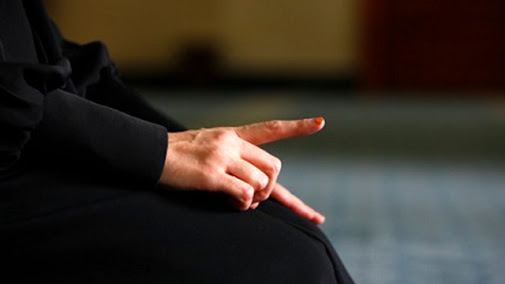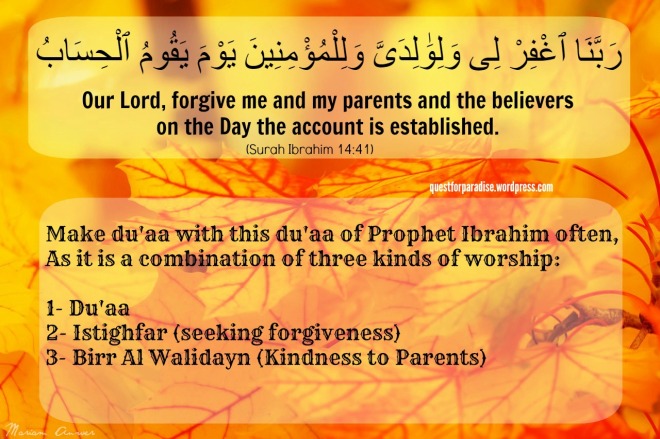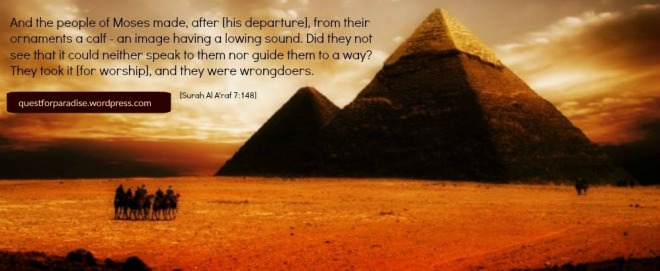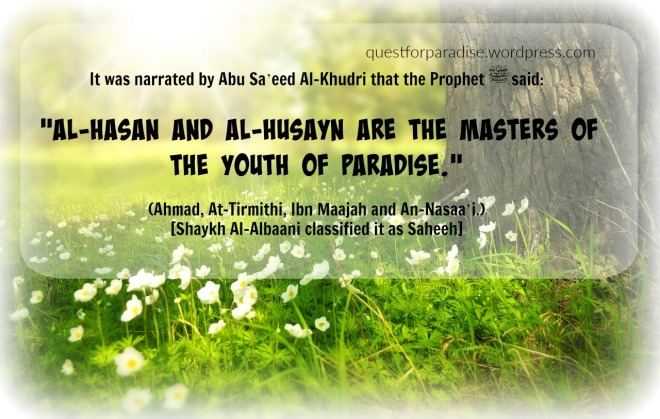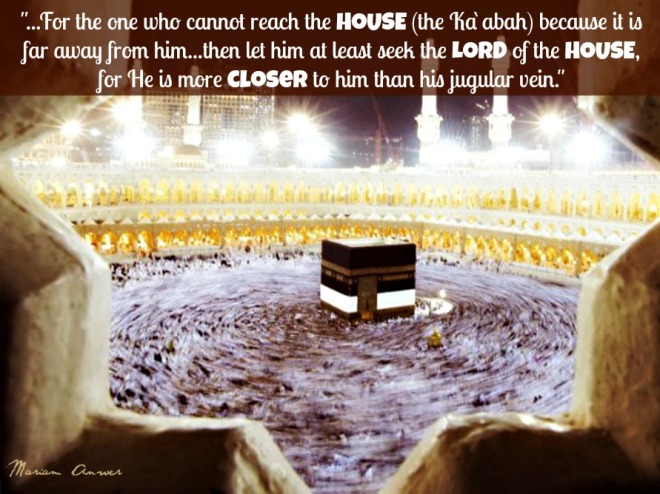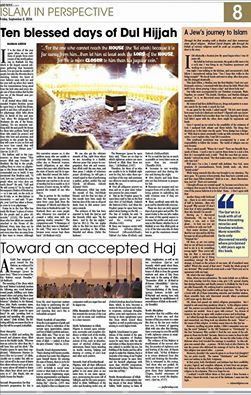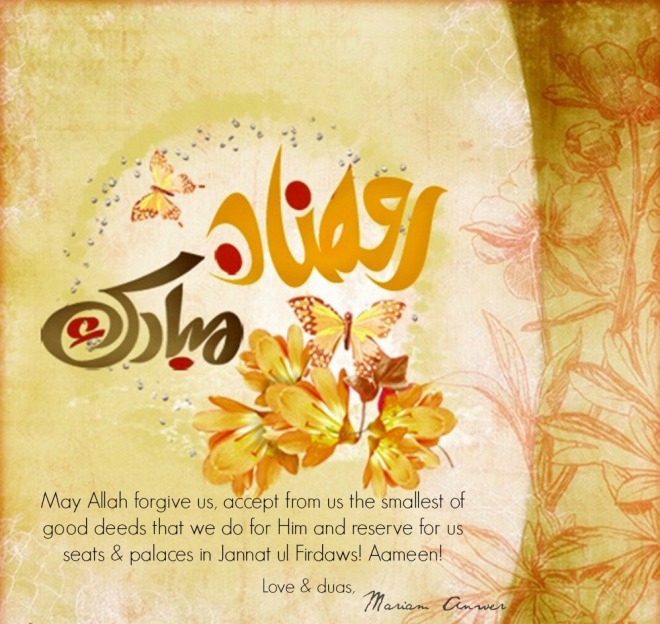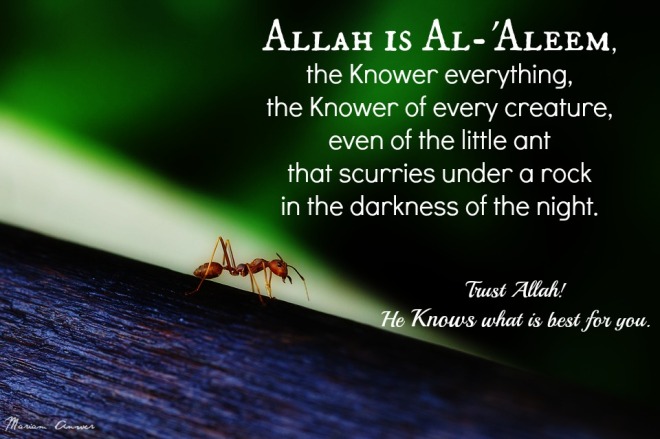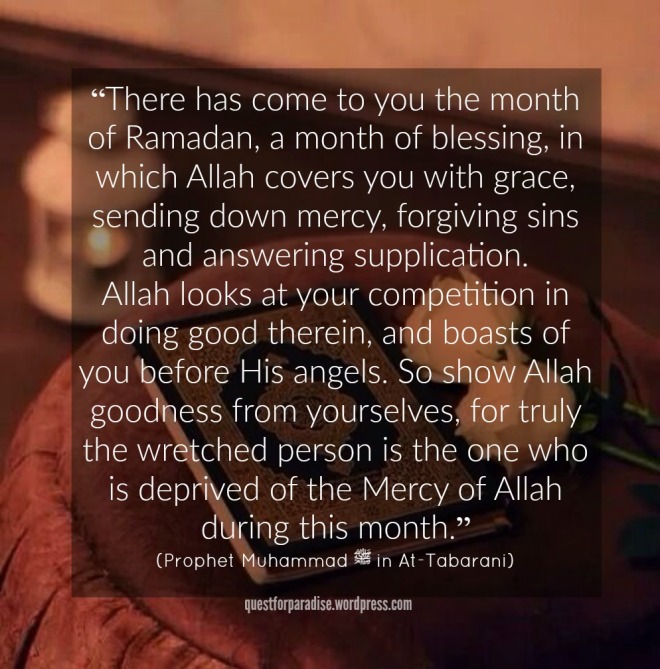
Praise and thanks to Allah who has made us reach the blessed month of Ramadan yet again this year. He made it a month of mercy, forgiveness, du’aa and multiplied rewards. Every night of this blessed month, He invites the fortunate ones who witness it, to race and compete with each other in doing righteous deeds. The Prophet (peace be upon him) said “On the first night of the month of Ramadan, the devils are chained, the jinn are restrained, and the gates of Hellfire are closed and none of its gates are opened. The gates of Paradise are opened and none of its gates are closed. A caller announces: O seeker of good, come near! O seeker of evil, stop short! Allah will save them from the Hellfire and that is during every night of Ramadan.” (At-Tirmidhi-682)
How amazing is that? Could our names be among the ones whom Allah removes from the list of people going to Hell? Insha Allah, Yes! With the devils being chained and the entrance to Paradise made so easy, racing to do all that Allah has commanded and trying our best to avoid all that He has forbidden has been made easy for us in this blessed month. Ramadan is without doubt a golden opportunity for all of us who hope to be saved from the Hell fire and yearn to dwell in Paradise, where we will have all that we desire. This is not a month of socializing and feasting even though it is common to see this around us. This is a month of competing with each other in improving our relationship with our Creator – A month where we ignore all distractions and race to him by doing lots of good deeds. Allah says, “And hasten to forgiveness from your Lord and a garden [i.e. paradise] as wide as the heavens and earth, prepared for the righteous.” (Qur’an 3:133)
The Prophet (peace be upon him) said, “There has come to you the month of Ramadan, a month of blessing, in which Allah covers you with grace, sending down mercy, forgiving sins and answering supplication. Allah looks at your competition in doing good therein, and boasts of you before His angels. So show Allah goodness from yourselves, for truly the wretched person is the one who is deprived of the Mercy of Allah during this month.” (At Tabarani)
The Messenger (peace be upon him) and his companions would pray, fast, spend time with the Qur’an and be obedient to Allah all year round but in Ramadan, they would maximize their efforts to excel in various good deeds. Nothing can be better for us than following their footsteps in this world and then being rewarded by having their company in the Hereafter. The Messenger (peace be upon him) mentioned many actions which, if performed sincerely, grant us great rewards.
The best of such actions in Ramadan is fasting, which has been made obligatory by the Almighty. The exact reward for fasting has not been specified but it is expected to be tremendous because of the way this hadith describes it: “Every deed of the son of Adam will be multiplied between ten and seven hundred times. Allah, may He be glorified and exalted, said: Except fasting. It is for Me and I shall reward for it. He gives up his desires and his food for My sake.” (Muslim-1151) SubhanAllah! We need to perfect our fast by not just avoiding food and drink but also false and hateful speech and deeds so the rewards can be maximized. According to another hadith, there is a gate to Paradise that is called Ar-Rayyan. On the Day of Resurrection it will say: ‘Where are those who fasted?’ When the last [one who fasted] has passed through the gate, it will be locked. [al-Bukhari and Muslim].
The blessed month of Ramadan is a celebration of the Qur’an as the blessed Book was revealed in it. Striving hard to spend the month in reading, reciting and listening to the Qur’an carries huge rewards. Regarding reciting it, the Prophet (peace be upon him) said, “Whoever reads a letter from the Book of Allah, he will have a reward, and this reward will be multiplied by ten. I am not saying that ‘Alif, Laam, Meem’ is a letter, rather I am saying that ‘Alif’ is a letter, ‘Laam’ is a letter and ‘Meem’ is a letter.” (Tirmidhi-2910)
While for the one who listens to the Qur’an attentively (in prayer at the masjid or elsewhere), it was said that mercy does not come quicker to anyone than the one who listens to the Qur’an according to the words of Allah: “So when the Qur’an is recited, then listen to it and pay attention that you may receive mercy.” [Qur’an 7:204] The words “you may” make it mandatory for Allah! (Tafsir Al Qurtubi)
In addition to studying the Qur’an, there is a narration by Ibn Abbas that emphasizes the need to be generous in giving all kinds of charity in Ramadan: “Allah’s Messenger (peace be upon him) was the most generous of people and he was the most generous in the month of Ramadan, when Jibril would meet him. Jibril used to meet him every night of Ramadan to teach him the Qur’an.” (Bukhari-1716, Muslim-4268)
Speaking of charity, you can also easily get the reward of fasting not just 30 fasts in the blessed month, but 60, 90 and so on! Surprised? Well, the Prophet (peace be upon him) said “Whoever gives a fasting person (food or drink to break their fast), they will have similar to the reward of the one who fasted, without any decrease for the one who fasted.” (At-Tirmidhi-Authenticated by Al Albani) Buy some dates and hand them over at some masjid, for the worshippers at the time of breaking the fast or hand over bottles of cold water and small packets of dates on the road sides at the time of Maghrib. If you are unable to do any of that, then just helping out in the kitchen and setting up Iftar with dates and cold water for your family will bring a similar reward insha Allah.
Making extra voluntary prayer along with the 5 obligatory ones is another way to race to Paradise according to the narration of Rabi’a b.Ka’b who said: I was with Allah’s Messenger (peace be upon him) one night and I brought him water and what he required. He said to me: ‘Ask (for anything you like)’. I said: I ask for your company in Paradise. He (peace be upon him) said: ‘Or anything else other than it?’ I said: That is all (what I require). He (peace be upon him) said: ‘Then help me to achieve this for you by devoting yourself to frequent sujood [prostrations].’ “(Muslim-990) Let’s rush to the pleasure of Allah and His Paradise by spending the nights of Ramadan in prayer as whoever prays qiyaam – i.e., Taraweeh – with the imam until he finishes, it will be recorded as if he spent the whole night in prayer.” (Hadeeth classed as saheeh by al-Albaani in Saheeh al-Tirmidhi)
According to a hadeeth, performing an Umrah in Ramadan is like accompanying the Prophet (peace be upon him) on Hajj.” (Bukhari-1764) But as for those who live far away from the blessed land of Makkah and feel sad because they cannot perform Umrah in this blessed month, well you can get the ultimate rewards of Hajj and Umrah, from right where you are. According to a hadeeth, whoever prays Fajr Prayer in congregation, and then sits and remembers Allah until the sun rises, and then prays 2 units of voluntary prayer (Al-ishraq), he will gain a reward equal to that of performing a perfect, perfect, perfect Hajj and Umrah. (Al-Albaani, Saheeh Al-Jaami’-6346)
“Race to [all that is] good.” says Allah in the Qur’an (2:148) and one can think of no better time to do this except in the blessed season that we find ourselves in. Restraining our temper and our tongues from evil or idle talk, helping those in need, being patient in upholding ties with relatives even if they are rude to us will make us gain not just tremendous rewards but also the pleasure of Allah and His Paradise in this blessed month. Some short but beautiful and meaningful phrases of praising, glorifying and exalting Allah taught by the Prophet should also be recited in Ramadan to get those extra rewards. He (peace be upon him) said:
- “Whoever says Subhaan Allaah il ‘azeem wa bi hamdihi (Glory and praise be to Allaah the Almighty), a palm tree will be planted for him in Paradise.”(Tirmidhi)
- “There are) two words which are dear to the Most Merciful (Allah) and very light (easy) for the tongue (to say), but very heavy in weight in the balance. They are: Subhan-Allahi wa bihamdihi, Subhan-Allahil-Azim (Glory and praise to Allah, and Glory to Allah the Almighty)’. (Bukhari)
- “Glorify Allah a hundred times by just saying Subhanallah (Glorified is Allah) and a thousand good deeds will be written for you, or a thousand sins will be wiped away.” (Muslim)
- “Say ‘Laa Hawla Wa Laa Quwwataa Illaa Billaah’ (There is no might or power except with Allah) in abundance, for indeed it is from the treasures of Jannah.“ (Bukhaari) This means that this phrase is a treasure that will be preserved and rewarded to the servant in Jannah if he utters it.
How Merciful is our Lord, Who enlightened us to countless good deeds that lead to His pleasure and Paradise – Alhamdulillah! Regardless how much we do and how much we offer we will always fall short fulfilling Allah’s rights upon us, therefore we must increase in seeking His forgiveness and always seek His guidance and help in doing good for His sake. He says: “And those who strive for Us – We will surely guide them to Our ways (the means to attain the acceptance and pleasure of Allah). And indeed Allah is with the doers of good.” (Qur’an 29:69)
May Allah grant us the strength and tawfiq to make the most of this blessed month and be winners in this race to be among His beloved ones. Ameen.
– Written Mariam Anwer
A condensed version of this article originally published in Arab News
